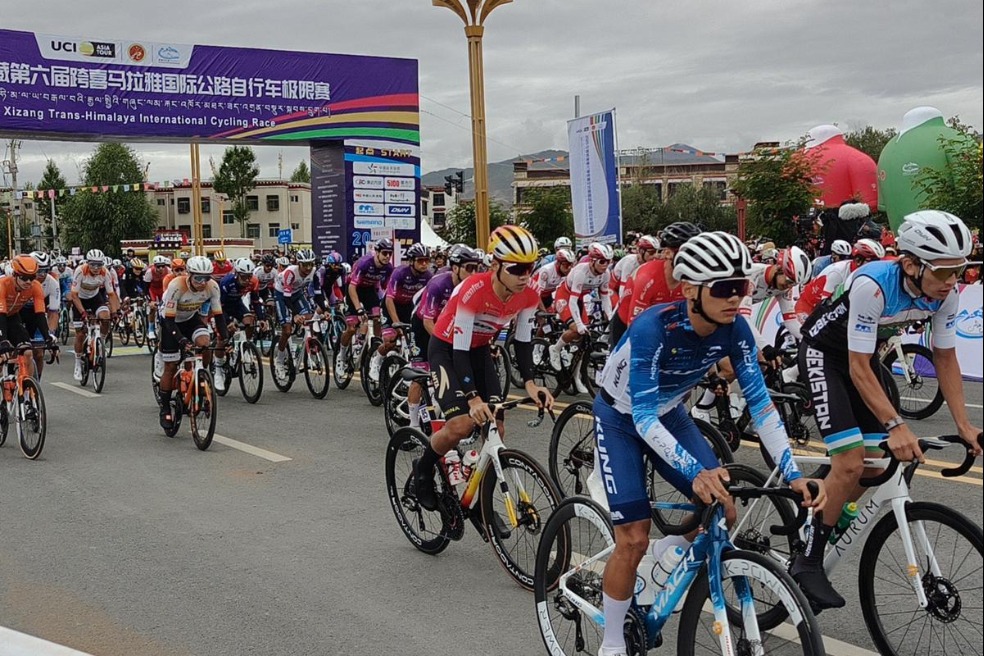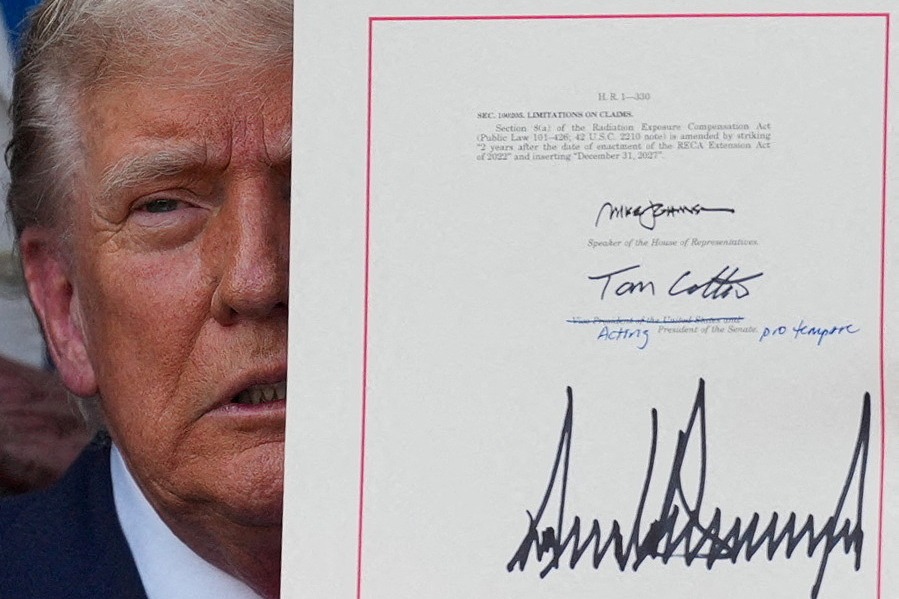Movie gets theatergoers all gloved up
Recent box-office hit YOLO fuels a national surge in popularity for the sport of boxing, He Qi reports in Shanghai.

If Zou Shiming's winning of multiple world and Olympic boxing championships is seen as a milestone in Chinese boxing history, the recent film Re La Gun Tang — which also goes by the English title YOLO — about an overweight woman rebuilding her confidence through boxing, can be seen as another, and is set to boost the development of the sport in China, according to Wang Dexin, a boxing professor at the Shanghai University of Sport.
A boxing instructor for over 30 years and Zou's former mentor, Wang served as the technical director of boxing for YOLO, an acronym for "you only live once", which dominated China's box office during the Spring Festival holiday, and which has so far grossed more than 3 billion yuan ($420 million).
During filming, lead actress, Jia Ling, who also directed the movie, lost 50 kilograms playing the protagonist Du Leying.
The film's popularity and Jia's success have ignited a fervor for the sport of boxing among moviegoers that has transcended theaters.
Data from e-commerce platform Meituan shows that online searches related to "boxing" increased 388.4 percent year-on-year in the week following the movie's premiere on Feb 10, and the consumer review platform Dianping saw a 337.53 percent increase in related comments.
Keyword searches, such as "adult boxing", "trial boxing class", and "female boxing" have seen a tenfold year-on-year increase. Shanghai ranks highest in search volume, the data shows.
Wang is also an instructor for referees accredited by the International Boxing Federation and a member of the Asian Boxing Confederation's Referees and Judges Commission. Committed to promoting boxing throughout his career, he is gratified by the positive response to the film.
"The influence of YOLO has achieved levels of promotion and popularization of boxing rarely seen in the past few decades, and I think it will be difficult to surpass in the short term," says Wang.
While boxing dates back to ancient times and is considered one of the oldest forms of martial arts in the world, China is a latecomer to the development of modern boxing, Wang says.
As it is known now, boxing began in the early 1800s when James Figg (1695-1734) won the first British boxing championship in 1719. In 1867, British boxing champion John Sholto Douglas (1844-1900) compiled a set of regulations that prohibited kicking, head-butting, biting, and wrestling, as well as introducing the rule that athletes must stand up within 10 seconds of being knocked down. These rules were recognized worldwide in 1891 and promoted boxing to a codified sport.
At the end of the 19th century, boxing became popular in America and Europe. The establishment of associations, such as the Amateur Boxing Association and the World Boxing Council, promoted the development of the sport.
"China resumed boxing in 1986 after the sport was suspended in the 1950s due to issues, such as inadequate medical support," Wang says.
After the national boxing team was established in Beijing in 1988, Bai Chongguang claimed the gold medal at the 11th Asian Games, delivering the country's first gold medal at an intercontinental boxing competition.
In 2004, Zou claimed China's first Olympic boxing medal. He continued to win the gold medal at the world championships in 2005, becoming the first Chinese boxer to stand on the highest podium, and then won China's first Olympic boxing gold medal in 2008, and successfully defended his title at the London Olympics four years later.
Thanks to Zou's success, boxing clubs mushroomed in cities across the country.
"At the time, Shanghai opened many boxing gyms and many people were also attracted to boxing, inspired by Zou's success," says Sun Min, a boxing coach in charge of Xiaolong Boxing Gym in Shanghai.
"Boxing was a hot topic at the time," he adds. Sun was previously a professional boxer and has been working in the boxing sector for over two decades.
But the fervor for boxing gradually waned, he says, and boxing entered a relatively slow period.
Stereotypes about boxing might be one of the reasons.
"In the past, people's impressions of boxing were of violence, cruelty and blood, but, in fact, it is a sport requiring a range of abilities, combining speed, strength, coordination and flexibility," Wang says.
"Boxing is not something that you merely practice for fitness gains. It requires mindfulness more than anything else, especially in the ring. It is a sport that combines willpower, intellect and physical strength," says Wang, who also made a cameo appearance as a referee in the film. "A good boxer needs to have courage, and technical and tactical abilities to compete with an opponent."
Even as a professional, Wang used to have misunderstandings about the sport.
"When I first got into boxing, I thought it was a sport for strong men," Wang says. But, when women's boxing was included in the 2012 London Olympics, and he saw a greater number of women participating in boxing, he realized it is actually a sport for the brave.
Guang Ming, head coach and director of the Xindoushi (New Fighters) boxing club in Shanghai's Jing'an district, says YOLO has made many people view boxing as a sport that can help them become fit.
"Indeed, more people have come to inquire about boxing classes since the film's release," Guang says. "I think it's good for the popularization of boxing."
Similarly, mixed martial arts, or MMA, has also remained a relatively niche sport in terms of participation, but is gaining increasing public attention due to the success of Zhang Weili, China's first and only UFC champion.
While Zhang has shown the world the strength and power of Chinese women, now audiences nationwide have seen Jia's transformation.
The impact of this film has given Wang more confidence in the development of boxing as a popular sport.
Sun from Xiaolong Boxing Gym agrees. With more people coming to the gym for trial classes, Sun says, "I hope to take advantage of this trend and enable more people to experience boxing's unique appeal."
Hao Jiejing is sure of boxing's growing popularity. She herself was first introduced to another pugilistic form, Thai boxing, five years ago. He now runs Rama Muay Thai Gym in Shanghai, which employs coaches from Thailand, all with professional training.
"There are already many Muay Thai gyms in Shanghai, and most of the time the coaches are fully booked," Hao says.
Since Wang started working as a boxing professor at Shanghai University of Sport in 1993, he has been dedicated to promoting boxing as a sport.
In addition to traveling to participate in the promotion and evaluation of international boxing referees, Wang gives lectures to coaches and referees in China and took part in devising the grading standards for Chinese boxers.
Wang believes boxing has bright prospects to develop in China, as it is a sport with few barriers to entry.
"Training can be conducted at home or in the office, and is not limited by the venue. So, it is suitable for practicing at any time," Wang says.
In addition, Wang has insisted on taking boxing to schools and has encouraged everyone to learn from a young age.
"Due to the need for quick and strong breathing, boxing can also enhance cardiovascular function and improve endurance. At the same time, boxing releases pressure and emotions through the act of punching sandbags," he adds. "Especially for teenagers, boxing is a sport that can improve overall physical and psychological fitness."
Wang reminds practitioners that it is important to choose a professional coach and understand that boxing also needs to be combined with physical fitness and other auxiliary exercise.
"Nonetheless, the opportunity to promote public participation in boxing has actually arrived," Wang says.
Wu Xianjie contributed to this story.
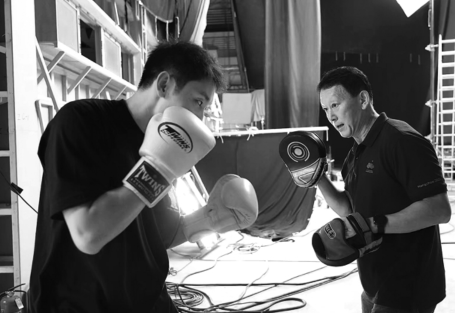
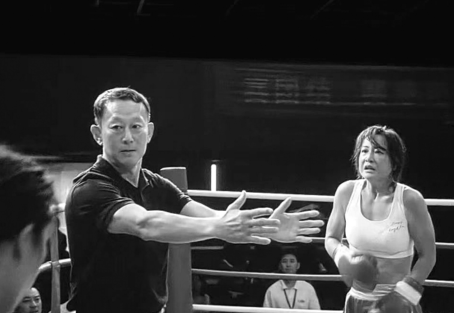
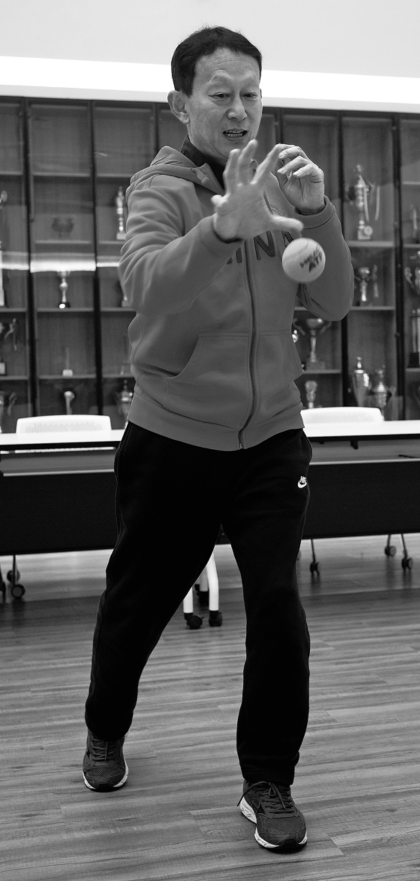

Today's Top News
- Chengdu games hailed as the new benchmark
- Xi, Lula pledge to deepen China-Brazil cooperation
- China, US reach deal to extend tariff suspension
- Demand for?Nvidia’s H20 chip lackluster
- Washington not incarnation of justice: China Daily editorial
- Tariff truce gains time for talks although some tough issues remain to be resolved
















